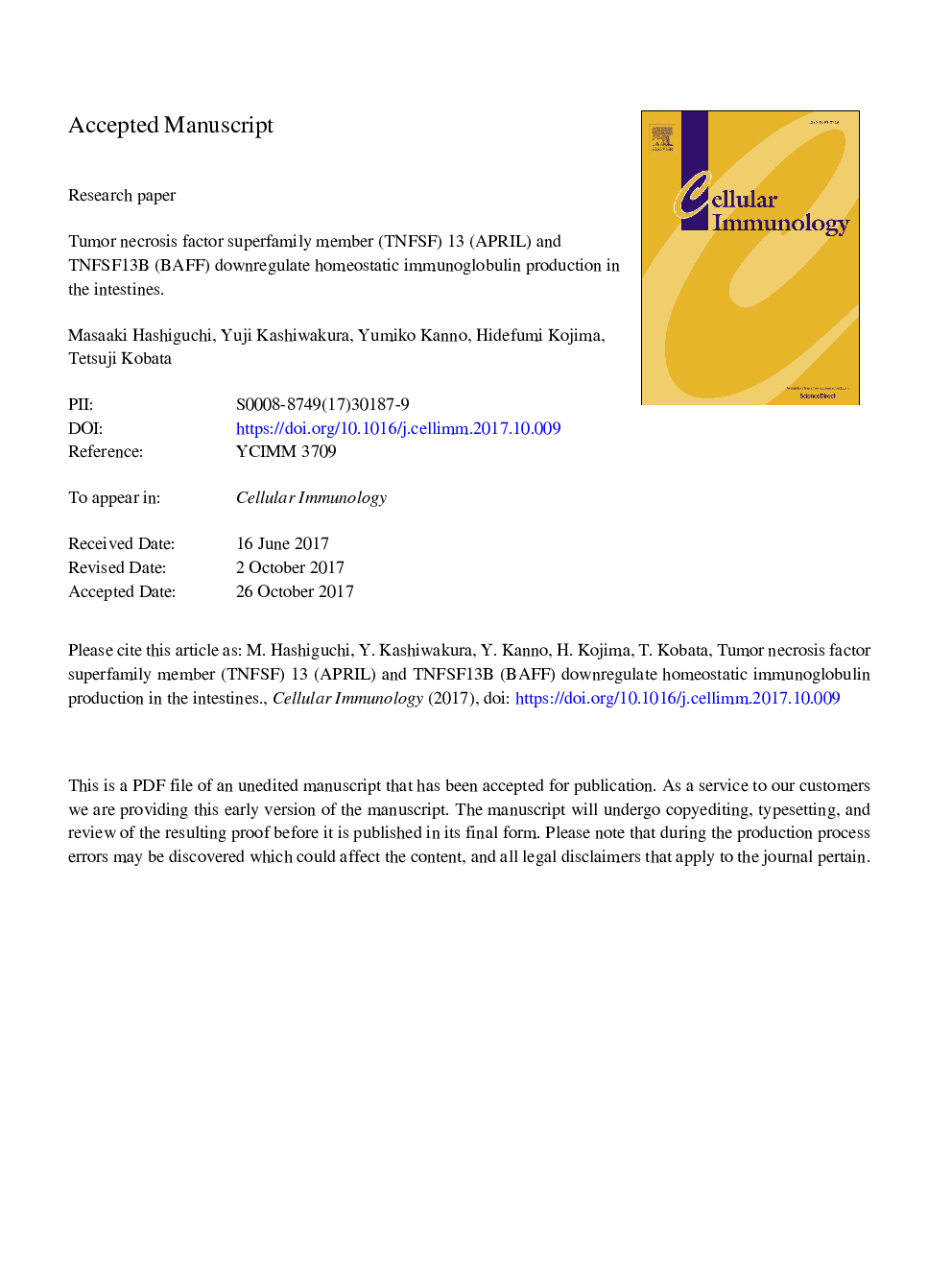| Article ID | Journal | Published Year | Pages | File Type |
|---|---|---|---|---|
| 8463605 | Cellular Immunology | 2018 | 25 Pages |
Abstract
Intestinal immunoglobulins (Igs) protect against microbes. However, the regulation of intestinal Ig production is poorly understood. In this study, we have investigated the roles of APRIL (tumor necrosis factor superfamily member [TNFSF] 13) and BAFF (TNFSF13B) in intestinal Ig induction. Peyer's patches (PPs) are, at least in part, an inductive site for Igs, including IgA. Introducing APRIL and BAFF in vivo lowered the frequency of IgG1+ or IgG2b+ B cells in PPs. Administration of TACI-Fc upregulated the frequency of IgG1+, IgG2b+, and IgA+ B cells in PPs, suggesting that APRIL and BAFF attenuate Ig production in these regions. TACI-Fc also upregulated intestinal IgA levels and expanded germinal center B cells in PPs. These results indicate that APRIL and BAFF paradoxically downregulate homeostatic Ig production in the intestines.
Keywords
CSRHSPGCFSEBCMADCsintraperitoneal(ly)B cell maturation antigenAPRILimmunoglobulin class switch recombinationBAFFDendritic cellsphycoerythrinfollicularGerminal centermarginal zoneHeparan sulfate proteoglycanAntibodyPeyer’s patchcarboxyfluorescein diacetate succinimidyl estera proliferation-inducing ligand
Related Topics
Life Sciences
Biochemistry, Genetics and Molecular Biology
Cell Biology
Authors
Masaaki Hashiguchi, Yuji Kashiwakura, Yumiko Kanno, Hidefumi Kojima, Tetsuji Kobata,
